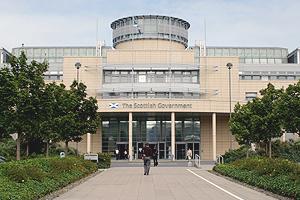Details of the Scottish Government's plans to introduce landfill bans and require all residual waste to be pre-treated before it is sent to energy from waste facilities have been launched for consultation today (December 2).
In June, the Scottish Government published its ‘Zero Waste Plan', laying out the long-term strategic direction for waste management in Scotland and laying out 22 actions to deliver it.
And, today's consultation explains in more detail what the Scottish Government is proposing and what regulatory changes it hopes to make. These will be delivered under the Zero Waste (Scotland) Regulations 2011.
The changes include:
1. An extended Duty of Care on all waste producers other than householders to source segregate key recyclable materials. These materials are paper and card, glass, metals and plastics. Food waste is also targeted due to the environmental benefits of managing biowastes separately. The requirement is intended to place a general responsibility for everyone to do the best they can with their recyclable wastes and is hoped to lead to a ‘step change' in how waste in Scotland in managed.
2. A ban on mixing separately collected recyclable materials. Once recyclable materials have been segregated, they must be managed in a way which does not compromise their quality. The proposed regulations will give SEPA statutory powers to include conditions in environmental permits to make sure that source segregated materials are not mixed with other wastes or materials in a way which would hinder their recycling potential.
3. A ban on landfilling certain recyclable materials. This supports the measures taken to maximise levels of quality recycling by banning those same materials from landfill when source segregated and separately collected.
4. A restriction on the inputs to energy-from-waste (EfW) facilities, with the exception of anaerobic digestion facilities, to ensure that waste materials which could have been reused or recycled are not incinerated. EfW inputs will be restricted, through the environmental permit, to residual waste and other suitable single stream wastes such as contaminated wood. This restriction means that unsorted waste will not be able to go directly for EfW without first being pre-treated. This provides a second opportunity to remove recyclate missed at the source segregation stage and ensure that “Scotland does not simply move from mass landfill to mass incineration”.
5. A “property based” ban on waste disposed of to landfill based on organic content, due to its environmental impact. This is intended to reduce both the volumes and biodegradability of waste being sent to landfill.
With regards to timescales, the government said that it wanted to introduce the requirement to sort dry recyclables and food waste in 2012, with a landfill ban for source-segregated dry recyclables and food waste to come in 2016, followed by the ban on biodegradable waste to landfill in 2017.
For the energy-from-waste feedstock restrictions, the Scottish Government said that it intended for these to apply immediately to any new installations and is now consulting on the date by which it will expect all existing facilities to comply.
The Scottish Government said: “Under the proposals, much less waste will be transported directly from producers to incineration or landfill. Source segregation will drive greater volumes of recyclable materials to appropriate treatment for recycling. Unsorted wastes will be pre-treated to extract recyclable material, produce Refuse Derived Fuel and reduce the biodegradability of the landfilled fraction.”
The consultation closes on February 28 2011.












Subscribe for free